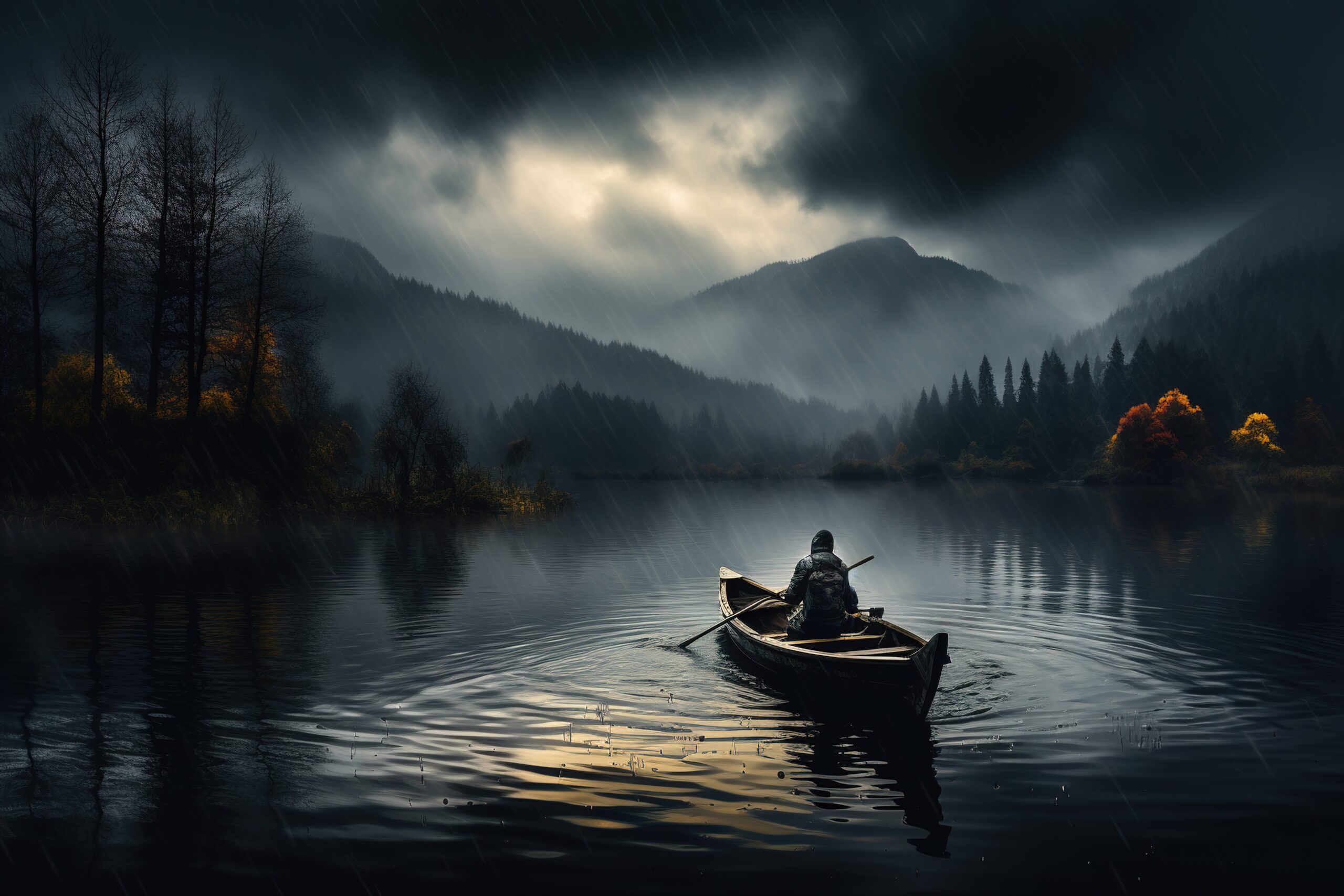Is rain better or worse for fishing?
Key Takeaways
- Rain can make fish more active by providing them with more oxygen and cooling down the water temperature.
- Rain also washes insects, worms, and other food items into the water, creating a feeding frenzy for fish.
- Factors such as the strength and duration of the rain, the type of fish, water clarity, barometric pressure, and lure choice can affect fishing success in rainy weather.
When it comes to fishing, weather conditions can play a significant role in determining success. One common question that arises is whether rain is better or worse for fishing. After analyzing multiple credible sources, it is clear that rain can actually be beneficial for fishing in many ways.
Rain as a Catalyst for Fish Activity
One of the main reasons why rain is considered good for fishing is that it can make fish more active. The increased precipitation can provide fish with more oxygen due to the aeration of the water surface, leading to higher activity levels. Additionally, rainwater can cool down the water temperature, particularly during warmer months, which can also stimulate fish activity.
The presence of rain also washes insects, worms, and other food items into the water, creating a feeding frenzy for fish. This influx of food and nutrients entices fish to start feeding, making them more receptive to bait and lures. Furthermore, rain reduces direct sunlight due to cloud cover, creating better feeding conditions for fish as they feel more secure in the dimmer light.
Factors Affecting Fishing Success in Rainy Weather
While rain generally has positive effects on fishing, it’s important to consider various factors that can influence fishing success during rainy weather. The strength and duration of the rain, the type of fish being targeted, water clarity, barometric pressure, and lure choice are all important considerations.
For example, some fish species may be more responsive to rain than others. Additionally, water clarity can impact visibility and the effectiveness of certain fishing techniques. Understanding these factors and adapting your approach accordingly can greatly enhance your chances of success when fishing in the rain.
Tips for Fishing in the Rain
To maximize your fishing experience during rainy weather, it’s helpful to follow some expert tips and techniques:
- Fish the topwater areas: Rain can disorient fish and make them more likely to strike at topwater baits, so focus on surface fishing.
- Use an active fishing technique: Increase your retrieval speed to mimic the quick movement of prey and attract fish’s attention.
- Attach bright colored lures: Bright colors can stand out in the cloudy water, increasing the chances of enticing a strike.
- Wear the right clothing: Stay comfortable and dry by wearing waterproof clothing, including a rain jacket, hat, pants, and shoes.
- Be safe in wet conditions: Take extra precautions to avoid slipping or falling on wet surfaces, and be mindful of lightning and thunder during thunderstorms.
- Experiment with different lures: Try using jitterbugs or buzz baits for bass, reflective lures for panfish, and various lures for trout, adapting to the preferences of different fish species.
- Explore different depths and locations: Go deep and slow for species like walleye, while targeting pike in the shallows.
Conclusion
In conclusion, rain can be a boon for fishing enthusiasts. It can make fish more active, create feeding opportunities, and provide cover and food sources for them. However, it’s important to consider various factors and adapt your approach accordingly to maximize your chances of success when fishing in the rain.
Related Websites:
FAQs:
Q: How does rain affect fish behavior in rivers?
Rain can influence fish behavior in rivers by potentially changing their activity levels and feeding patterns. It is believed that fish may become more active during and after rainfall due to various reasons such as increased food availability or changes in water conditions.
Q: What impact does rainfall have on water conditions in rivers?
Rainfall can affect water conditions in rivers by increasing water flow, turbidity, and oxygen levels. This can impact fish and their feeding patterns, as it may create more favorable conditions for feeding or make fish less cautious due to reduced visibility.
Q: What are the advantages of fishing in the rain?
Fishing in the rain can provide increased feeding opportunities for fish. Rain can stimulate aquatic insect activity, leading to more food available for fish. This can result in increased feeding behavior and better chances of catching fish. Additionally, reduced visibility in the water due to rain can make fish less cautious and more willing to bite.
Q: What are the disadvantages of fishing in the rain?
Fishing in the rain can present challenging conditions for anglers. Factors such as limited visibility, slippery conditions, and discomfort may be encountered. Additionally, some fish species may become less active or change their feeding patterns during or after rainfall, requiring anglers to adapt their strategies.
Q: What tips can help ensure successful fishing in the rain?
To ensure comfort and safety while fishing in the rain, consider using appropriate gear and equipment such as waterproof clothing and non-slip footwear. It is also important to adapt fishing techniques and strategies to the changing conditions caused by rain. Patience and persistence are key, as success may require more time and effort.






